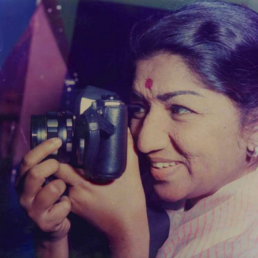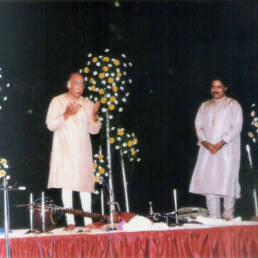Tagore with his life’s work has bound countless souls but seldom had the luxury of having lifelong friends himself. Among the handful, one came from a very different background and influenced him greatly.
Tagore often lamented that he missed the company of an equal mind. He was referring to the companionship Johann Wolfgang von Goethe and Friedrich Schiller had, though it was not from an intellectual perspective.
In 1897, J.C. Bose returned home from his triumphant tour of England after demonstrating wireless transmission of signals. Tagore went to visit him, but he wasn’t home. He left a single magnolia as a gesture of his appreciation for Bose’s accomplishment. It was the signal of a forever-bond.
JC Bose responded to Tagore and this bond formed the basis of many of Gurudev’s future works. As they grew closer, they started to spend more time at Selidah, a village on the banks of Padma, now in Bangladesh.
Bose, however, had a condition – during his visits, Tagore would have to read to him a new short story of his own. Before this, Tagore didn’t find much interest in writing short stories and only had a couple of them.
But to fulfil the demand of his closest friend, he started penning new short stories every week. Bose, on the other hand, kept his end of the friendship by attempting to take Tagore’s work global.
He took Sister Nivedita’s help to translate the stories into English. During his visit to England, he would search tirelessly for publishers who would publish Tagore’s work. Bose’s admiration for Tagore’s work did not stop there.
When Tagore founded Visva-Bharati, Bose was in-charge of designing a mechanical training workshop for hands-on training. He even sent his nephew Aurobindo Mohan Bose (whom he had raised as his own son) there as a student. It was a testament of his confidence in Tagore’s work.
For the world outside, Tagore went on to become a paragon painter very late in his life. However, only Bose had the knowledge that he started to paint quite early in his life. Such was the trust between them.
When Bose voiced his opinion against the British Raj, the British government questioned his scientific credibility. His articles published by the Royal Society were withdrawn. When Bose went to England on deputation, his leave was denied, leading to his financial crisis.
Then, to support his dearest friend, Tagore requested the Maharaja of Tripura, and arranged for a substantial amount of funds to extend Bose’s stay in England.
In his letter to Bose, Tagore wrote “Why do you even have to come back at the instruction of the government?… If we cannot set you free then we, as a nation, have failed.”. His words ultimately influenced Bose to establish Bose Institute – the temple of science.
Tagore went on to compose a song ‘Matri Mandir Punya Angana’ on the eve of the inauguration of the institute that later became their anthem. Surprisingly though, it wasn’t only the mutual admiration of art and aesthetic value that connected them so well.
Tagore once wrote to Bose in a letter: “Even though you have chosen science to be your vehicle of expression, if you had stuck to literature Saraswati would have been equally happy.”
November 23 was a cursed date in Tagore’s life. He lost his wife Mrinalini Devi and his exceptionally talented young son Samindranath, both on the same date, five years apart. It affected him so deeply that he began to believe in mysticism.
Three decades after his children’s untimely death, his dearest friend departed forever on the same date.
“When we were trying to find the actual course of our lives, we interacted and gave each other support. So our letters also not only give a record of our personal interactions but if we could put all these letters together that will give a very good example,…”
“…a very good depiction of the Bengali society of that time and the history of the entire evolution.” – Tagore was later quoted on his relationship with Bose.
Love has many forms, some come in the form of a friend. Tagore and Bose through their life’s work and exchange of letters established an eternal relation that echoed the holy vow “till death do us part”.
Source:
Dr. Raha, Sibaji. Acharya J.C.Bose and Gurudev Rabindranath Tagore: The Tale of a Great Friendship. (India International Centre)




